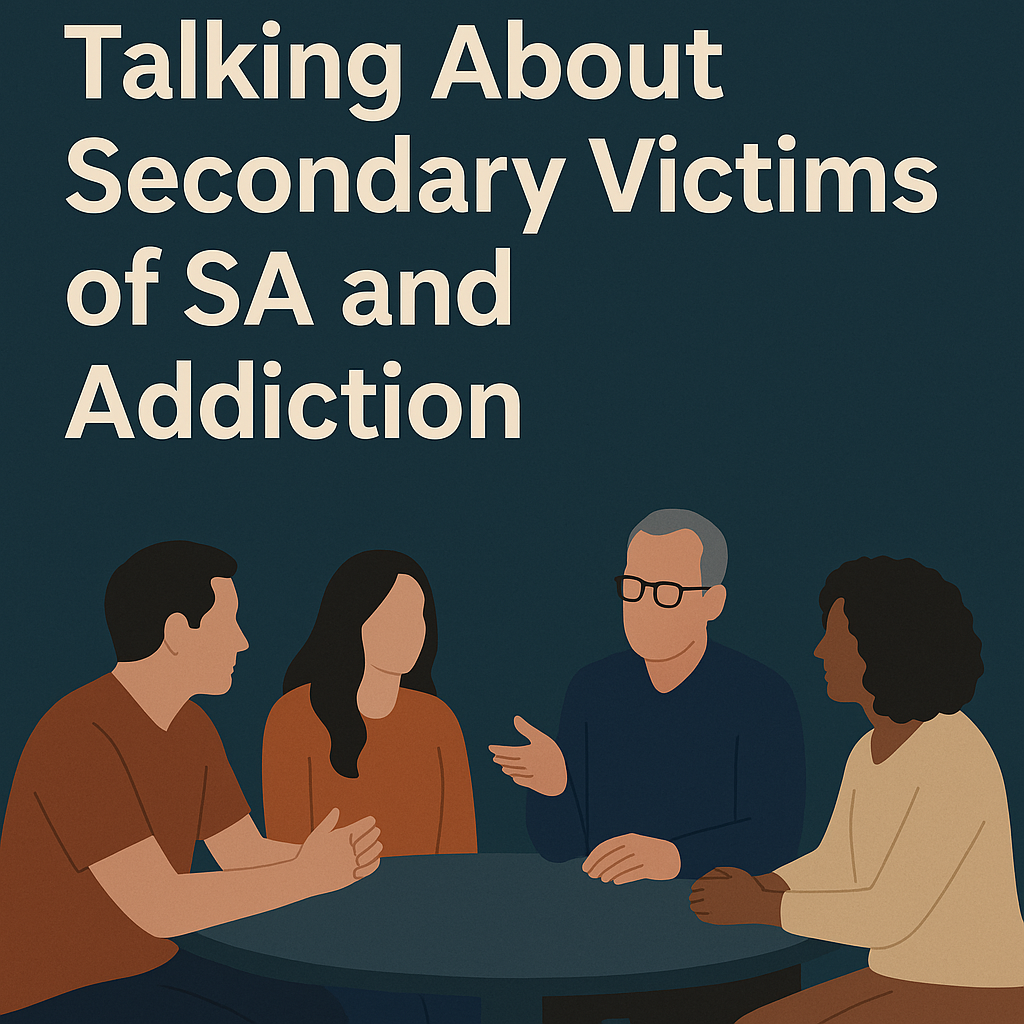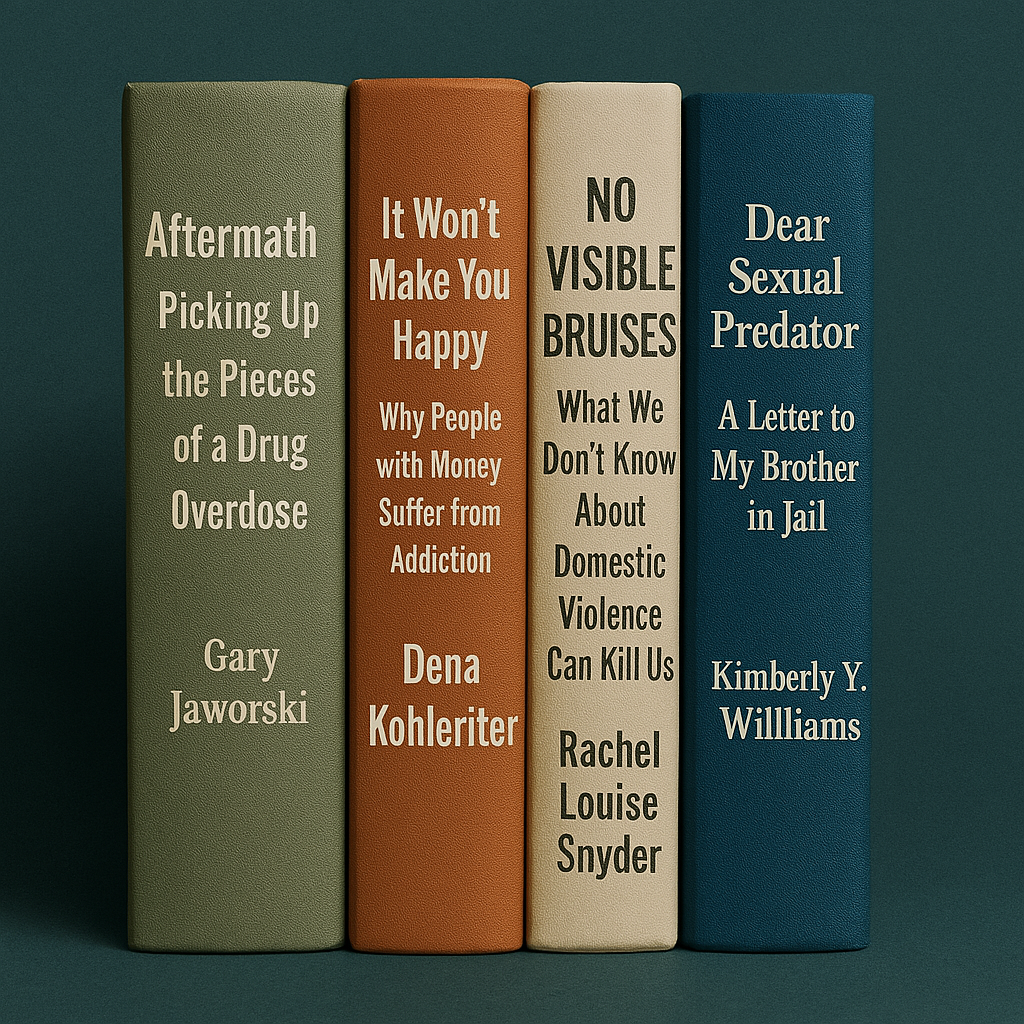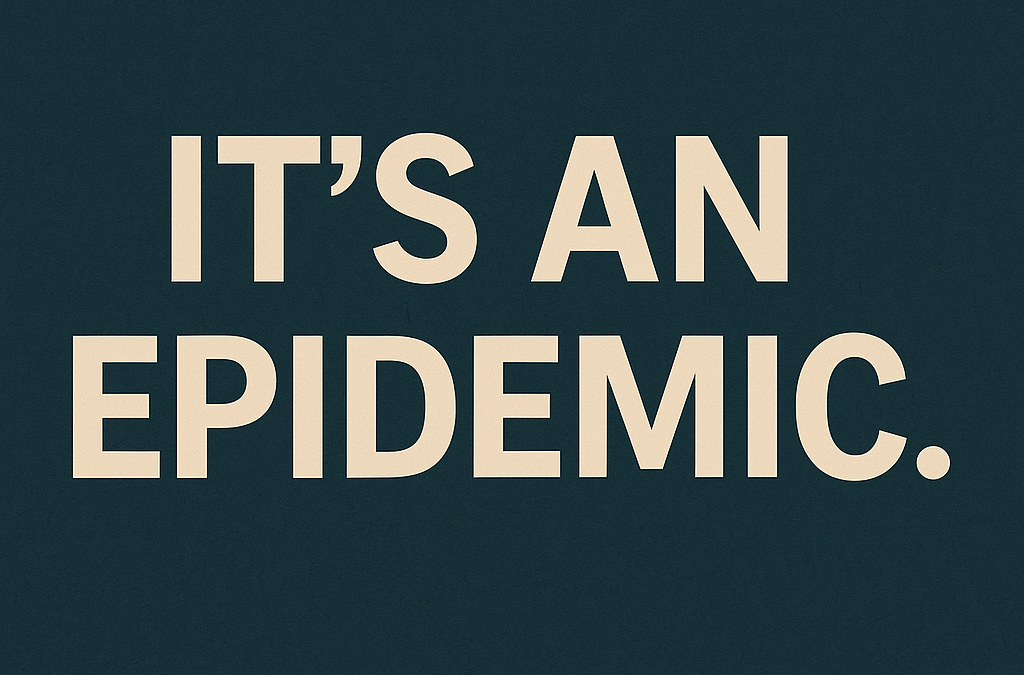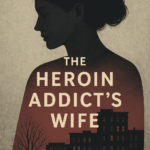AN INTERESTING PERSPECTIVE?
I realize I have discussed this before—why wouldn’t I, when these are the topics of my last two books? I feel like it can’t be talked about enough. When I recently found myself drawing a parallel between the issues of addiction and sexual assault during a book talk, I braced myself for potential backlash. After all, I wasn’t equating one with the other, just acknowledging that both are massive issues rooted in shame and secrecy.
To my surprise, the audience responded positively. I was told that the comparison was eye-opening and thought-provoking, shedding light on how both addiction and sexual violence are prevalent issues that have been affecting society for decades. While addiction has been increasingly brought to the forefront and made more acceptable to discuss, sexual assault and violence are only in recent decades beginning to emerge from the shadows. The feedback was so encouraging that I was invited to speak about it further on the podcast What They Don’t Say. The episode is dropping soon.
Secondary Victims of Sexual Assault: The Perpetrator’s Family
When we discuss the impact of sexual assault (SA), our attention naturally gravitates toward the primary victims—the survivors. While their voices deserve to be at the forefront, there is an often-overlooked group that also suffers deeply: the families of the perpetrators. These individuals, who are often blindsided and overwhelmed by the revelation of their loved one’s crime, become secondary victims in their own right.
The Hidden Trauma of Perpetrators’ Families
Imagine being the parent, sibling, or partner of someone accused or convicted of sexual assault. The shock, shame, and guilt are immense, coupled with the societal ostracization and judgment that inevitably follow. These families, who are often innocent of any wrongdoing, find themselves questioning how they missed the signs or how they could have prevented the harm. In a society that is quick to label and condemn, they are left navigating their own trauma in isolation.

A Parallel with Addiction: Both Are Epidemics
Much like sexual assault, addiction is an epidemic in our society. It does not just affect the individual but reverberates throughout families and communities. The difference, however, lies in perception: addiction is increasingly seen as a public health issue, whereas sexual assault is predominantly viewed through a lens of criminal justice. Yet, both have far-reaching consequences for families.
In families dealing with addiction, there is an ongoing cycle of hope, betrayal, relapse, and recovery. They face public scrutiny, feelings of guilt, and the unanswerable question: “What could I have done differently?” Families of perpetrators of SA experience a similar cycle of disbelief, confusion, and shame. Both groups endure the stigma of being associated with someone who has caused harm.

The Need for Empathy and Support
Secondary victims—whether they are the families of addicts or of sexual assault perpetrators—deserve recognition and support. Just as families of those struggling with addiction have access to support groups and community resources, families of SA perpetrators need spaces to process their pain without fear of judgment.
Moving Towards Healing
Addressing these epidemics means acknowledging that trauma spreads far beyond the immediate victim. Creating spaces for families to heal without judgment can break cycles of silence and shame. We need to challenge the binary of victim versus perpetrator and look at the collateral damage that these crises leave in their wake.
Let’s encourage more voices to come forward—because ignoring the pain of secondary victims only perpetuates the silence surrounding these societal issues. We must strive for a more compassionate and nuanced approach, one that includes every person affected by these pervasive problems.
Bringing these voices to light is not about excusing or minimizing harm but about acknowledging the full extent of trauma—and ensuring that no one suffers in silence.

Recommended Reading
For those looking to explore these themes further—and to pick up either of my books if you haven’t—The Silence in the Sound details the devastating effects of growing up with addiction, while The Summer Before, inspired by a real trial, dives into the complex emotional landscape surrounding trauma. Here are some insightful books that address the complexities of being a secondary victim, whether related to addiction or crimes of violence:
The Unbroken Brain by Maia Szalavitz – An in-depth look at addiction through the lens of learning rather than moral failing, helping families understand and cope.
Aftermath: Violence and the Remaking of a Self by Susan J. Brison – A powerful memoir that examines trauma, recovery, and the ripple effects of violence.
The Recovering: Intoxication and Its Aftermath by Leslie Jamison – A blend of memoir and cultural analysis, focusing on addiction and the stories of those affected.
More Voices Through Fiction
Sometimes, fiction allows us to explore complex issues through stories that resonate on a deeper emotional level. Here are some novels that touch on themes of addiction, trauma, and the aftermath of violence, offering perspectives that may parallel the experiences of secondary victims:
A Little Life by Hanya Yanagihara – A heartbreaking exploration of trauma, friendship, and survival, showing how past abuse continues to haunt and shape lives.
The Night of the Gun by David Carr – A memoir that reads like fiction, tackling addiction, memory, and redemption, highlighting how addiction reshapes relationships.
We Are the Light by Matthew Quick – A novel that delves into the aftermath of a tragedy and how a community copes with collective trauma.








Book Box
Gift 🎁 the readers in your life a special treat with a book box from best-selling and award-winning New England author, ME…Dianne C. Braley! This unique box includes one or both signed copies of her celebrated novels, The Summer Before and The Silence in the Sound, along with exclusive book-themed swag and a charming ornament—a ⭐️ starfish or 🍋 lemon, tying in beautifully with the novels’ themes. Each 📖 book can be personalized, so just shoot us an email or DM and let us know what you’d like written for that extra-special touch. Perfect for any book lover who appreciates heartfelt stories by a bestselling authors!
Order Your Book Box Here
You have Successfully Subscribed!
No spam email, unsubscribe anytime.